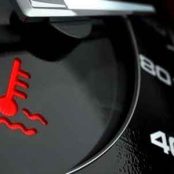 If your car overheats, you should pull over as soon as it is safe to do so and then switch off your engine. Allowing the engine to overheat can cause catastrophic damage, so knowing how to prevent this type of failure is priceless!
If your car overheats, you should pull over as soon as it is safe to do so and then switch off your engine. Allowing the engine to overheat can cause catastrophic damage, so knowing how to prevent this type of failure is priceless!
Hot weather is a common cause for vehicles overheating. However, this problem becomes more likely if you neglect your car’s maintenance, or more specifically, the little things you can do to prevent your car from overheating in the first place. In fact, there are quite a few simple ways you can prevent engine overheat from occurring, especially during those long journeys!
Here are seven methods you can use to prevent your car from overheating!
- Inspect your vehicle’s coolant and radiator on a regular basis. To prevent your engine from overheating, you should check your car’s coolant reservoir and radiator, to ensure your coolant and water levels are at the right amount. Depending on how frequently you use your car, check your coolant on a weekly basis and before a long drive.
- Regularly check your temperature gauge as you drive. Your temperature gauge is just as important as your fuel gauge. As you can gather from its name, the gauge indicates the temperature of your engine, which can be highly important if you would like to know if the radiator is becoming too hot whilst you’re driving. Therefore, take a glance at it sometimes and if you notice the scale tipping towards the hot side, start keeping an eye out for the next service station.
- Switch off the air-conditioning. Once you notice your engine temperature is increasing, it’s best to turn off your air conditioner. Doing this decreases the engine’s workload and gives you more time to search for the nearest service station. Another thing you can do is turn on your car blower to the highest setting, which moves the heat from the engine to the inside cabin effectively, giving you enough time to get to a suitable location to stop as well.
- Rev up your vehicle while in neutral. If you find yourself stopping in the middle of traffic, adjust your gear into neutral and then proceed to rev your engine. Should you still have some coolant left, this will allow it to flow freely through your radiator which will successfully cool it down, by creating more air.
- Stop by someplace safe. If the temperature gauge continues to rise as you drive and you aren’t anywhere near a service station, simply pull over somewhere you won’t cause a disturbance to the flow of traffic or obstruct the movement of other cars. As soon as you get to somewhere safe, pull open your car bonnet and give the radiator 20 minutes or so to cool down. To further cool it down, pour water on the radiator after. It is not advisable that you do it immediately after opening your bonnet as the water may cause damage to the radiator due to the sudden change in temperature.
- Take some extra coolant and water with you. It pays to bring extra coolant and a few gallons of water in case your car overheats during a long drive. After you’ve effectively cooled down your radiator, open your radiator cap (once you’ve confirmed that it is not too hot to open) and pour some water into your radiator to cool it down.
- Inspect your vehicle for possible leaks. After effectively cooling down your vehicle through the use of coolant and water, continuously check up on the temperature of your car before going back on the road. Should the temperature continue to increase despite using all these methods, there may be a possibility of a leak in your car. If you think this is the case it’s best that you give your local mechanic a call.
Try these simple yet efficient methods to properly prevent your car from overheating, allowing you to cruise without any worries about your vehicle breaking down! If you suspect your vehicle has a coolant issue and is overheating, get in touch today to find out how we can help you.